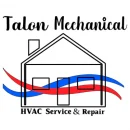Answers to Your Most Frequently Asked HVAC Questions

General HVAC Questions
Q: What does HVAC stand for? A: HVAC stands for Heating, Ventilation, and Air Conditioning. These systems are essential for regulating air flow, temperature, and humidity in residential and commercial buildings.
Q: How can I improve the energy efficiency of my HVAC system? A: Regular maintenance, sealing ducts, upgrading to energy-efficient equipment, using programmable thermostats, and improving home insulation can all boost your HVAC system’s energy efficiency.
Q: What is SEER and why is it important? A: SEER stands for Seasonal Energy Efficiency Ratio. It measures the efficiency of an air conditioning system. Higher SEER ratings indicate more energy-efficient systems, which can lower your energy bills.
Heating Questions
Q: What should I do if my furnace won’t turn on? A: Check if the thermostat is set to “heat” and the temperature is set higher than room temperature. Ensure the furnace switch is on and the circuit breaker hasn’t tripped. If these steps don’t work, call a professional.
Q: Why is my heating system making strange noises? A: Strange noises from your heating system could indicate issues like loose components, a failing blower motor, or air flow problems. It’s best to have a technician inspect and fix the issue.
Air Conditioning Questions
Q: How often should I replace the air filter in my AC unit? A: It’s recommended to replace your air filter every 1-3 months, depending on usage, the type of filter, and if you have pets or allergies.
Q: Can I run my air conditioner if it’s leaking water? A: While you may still get some cooling, a leaking air conditioner indicates a problem that needs attention. Continuing to run it can cause further damage. It’s best to have it inspected and repaired by a professional.
Maintenance and Repairs
Q: How can I prevent my HVAC system from breaking down? A: Regular maintenance, such as cleaning and replacing filters, inspecting and sealing ducts, and scheduling professional tune-ups can help prevent unexpected breakdowns.
Q: What is involved in an HVAC tune-up? A: An HVAC tune-up typically includes inspecting and cleaning components, checking refrigerant levels, tightening electrical connections, lubricating moving parts, and testing the system’s overall performance.
Installation and Replacement
Q: How do I know what size HVAC system I need? A: An HVAC professional can perform a load calculation to determine the right size system for your home. Factors include the size of your home, insulation levels, window types, and local climate.
Q: What are the benefits of replacing an old HVAC system? A: Benefits include improved energy efficiency, lower utility bills, enhanced comfort, reduced repair costs, and better indoor air quality.
Indoor Air Quality
Q: How can I tell if my ductwork needs cleaning? A: Signs that your ductwork needs cleaning include visible dust and debris, mold growth, pest infestations, and excessive dust accumulation on surfaces in your home.
Q: What is a heat pump and how does it work? A: A heat pump is an HVAC system that can provide both heating and cooling. It works by transferring heat from the outside air into your home in winter and reversing the process in summer.
Q: How does humidity affect my HVAC system? A: High humidity can make your HVAC system work harder to maintain comfortable temperatures, reducing efficiency and increasing wear and tear. Properly maintained dehumidifiers and humidifiers can help manage indoor humidity levels.
A Top Rated HVAC Contractor



